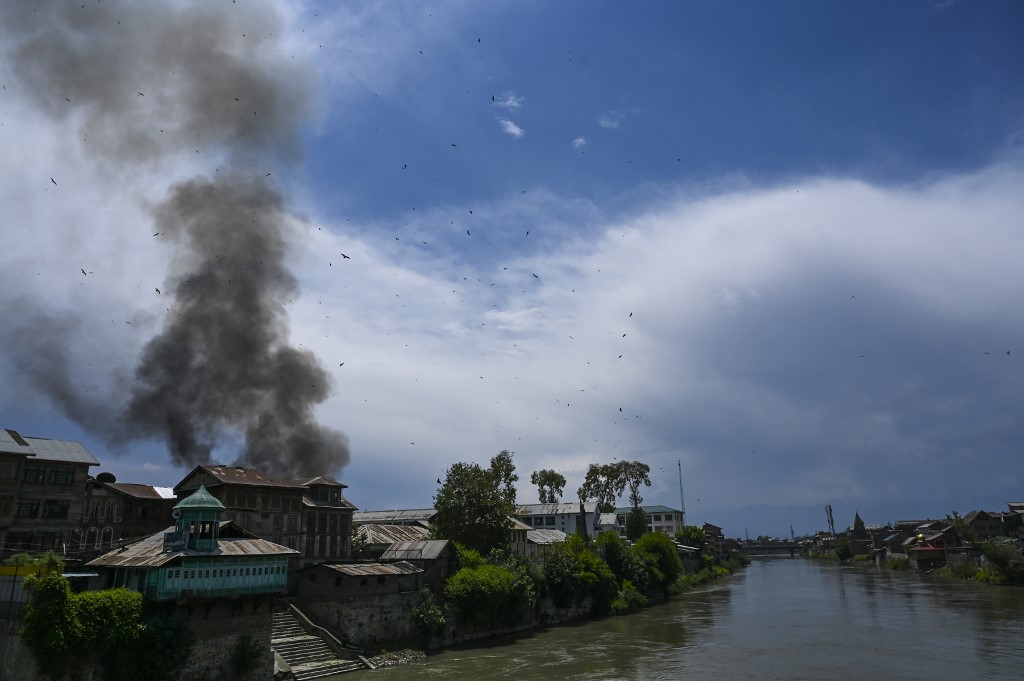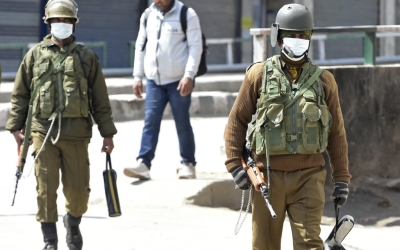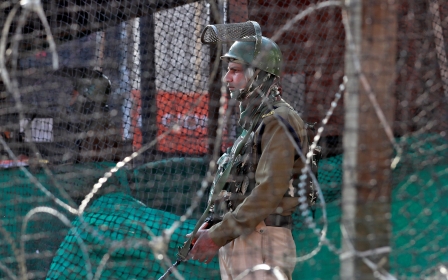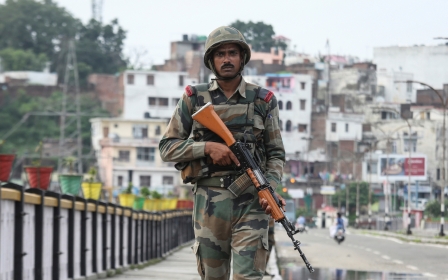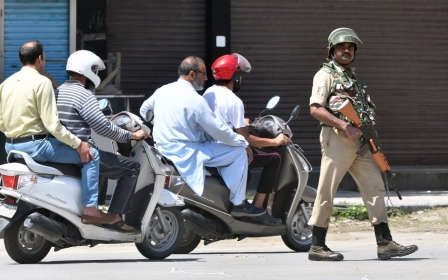India takes another leaf from Israel's playbook by denying funerals in Kashmir
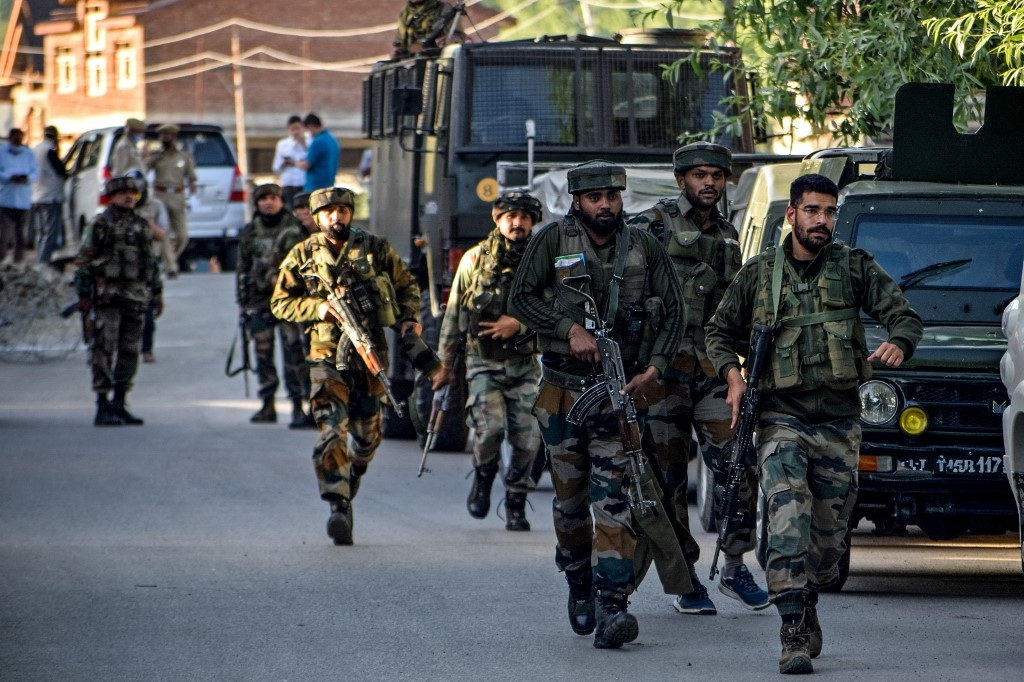
In Kashmir, the break of each new dawn this Ramadan is often accompanied by breaking news: cordon-and-search operations, houses blasted, militants killed, bodies not handed over to families.
The frequency of such operations amid the coronavirus lockdown has only increased alongside intensive surveillance, allowing the Indian state to further its repressive project under the guise of handling a health crisis.
Intrinsic violence
I’ve been home in Kashmir for more than two months. Everything feels different since the last time I came, before the months-long siege that started last August. And yet everything is the same: the dispensable Kashmiri bodies, the violence intrinsic to India’s control over our everyday lives, and the refusal of Kashmiris to submit.
On the night of 6 May, the predawn Ramadan meal began with our family anxiously looking at social media accounts of what was happening in Pulwama, south of Srinagar. There were unconfirmed reports that a top militant commander and his associates were trapped and a gunfight was underway.
New MEE newsletter: Jerusalem Dispatch
Sign up to get the latest insights and analysis on Israel-Palestine, alongside Turkey Unpacked and other MEE newsletters
By what measure of moral authority does a militaristic state demand that Kashmiris set aside their claims to the bodies of their kin?
A search for Kashmir-related tweets showed Indians already celebrating the killing of Hizbul Mujahideen commander Riyaz Naikoo as “revenge” for the killing of a colonel and a major of the Indian army several days prior in Handwara, north of Srinagar. There was no confirmation. The next morning, the limited 2G internet access that Kashmiris had been “allowed” for a few months disappeared; the same happened with cellphone services later in the day.
Two weeks later, two militants were killed and 15 houses destroyed in a gunfight in Srinagar. Pictures circulating on social media showed the father of one of those killed leading funeral prayers without his son’s body.
The practice of destroying civilian homes has accompanied military operations in Kashmir for decades, much like home demolitions by Israel targeting Palestinians. A couple of years ago, a retired lieutenant general of the Indian army reportedly remarked that this strategy was a means to “break the will of the people”.
Unmarked graves
Under recent protocols, the bodies of militants killed in encounters with Indian forces are not handed over to their families for last rites. The identities of those killed often aren’t revealed. Kashmir is known to have mass unmarked graves dotting the landscape.
The current situation is adding to the unnamed and unknown graves, away from where families would want their loved ones. The grieving are bounced from one officer to another, from one place to another, to DNA tests to prove kinship, as the Indian state continues to unleash procedural violence to punish Kashmiris for seeking freedom.
Earlier this month, a 14-year-old civilian killed in Handwara was buried in the presence of a few family members at a site where militants were buried. Such practices are akin to the Israeli tactic of holding Palestinian bodies, refusing families the right to mourn, and ensuring its control not only over the living, but also over the dead.
By what measure of moral authority does a militaristic state demand that Kashmiris set aside their claims to the bodies of their kin, their rights to grieve or to celebrate courageous lives, however they deem fit?
Militant funerals have always brought out thousands of men, women and children to the streets of Kashmir. People get on rooftops and climb trees for a last glimpse. Songs of mourning resound amid showers of flower petals as the dead are taken to their graves. For India’s security establishment, this has been a matter of concern, especially in recent years.
State propaganda
For one, the photos and videos that emerge show the overwhelming support for the militants, which state propaganda tries hard to cover up. Secondly, there is the notion that this attracts more youth to join militant ranks; it is here that the Indian state invokes the “civilising mission” trope, claiming it is trying to keep young, impressionable minds away from pro-freedom propaganda.
With the lockdown in place to minimise Covid-19 infections, India has used the excuse of “social distancing” to disallow families from taking the bodies of these militants. Granted no right over their lives or over their dead, Kashmiris are further dehumanised. The voices of journalists who try to tell these stories are suppressed.
Amid this backdrop, internet or mobile connectivity being cut hardly registers as a violation. Kashmiris keep a regular count of the dead, while facing increasing threats to keep their political dissent to themselves.
The Indian state’s denial of the very existence of a Kashmiri body deserving of rights comes alongside its denial of Kashmiris’ continued rejection of its power over them. But Kashmiris will break down this wall of oppression with a dream that refuses to be denied.
The views expressed in this article belong to the author and do not necessarily reflect the editorial policy of Middle East Eye.
Middle East Eye delivers independent and unrivalled coverage and analysis of the Middle East, North Africa and beyond. To learn more about republishing this content and the associated fees, please fill out this form. More about MEE can be found here.



